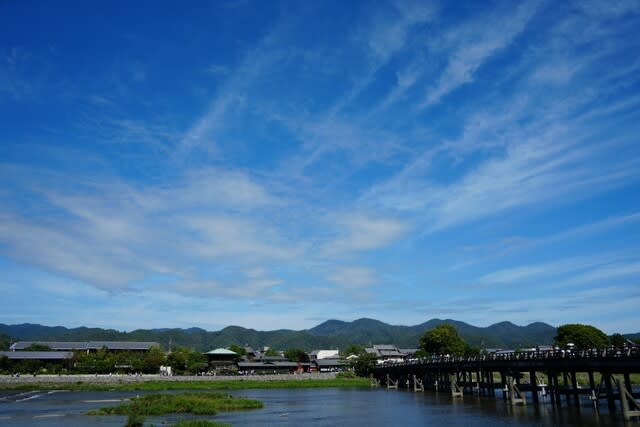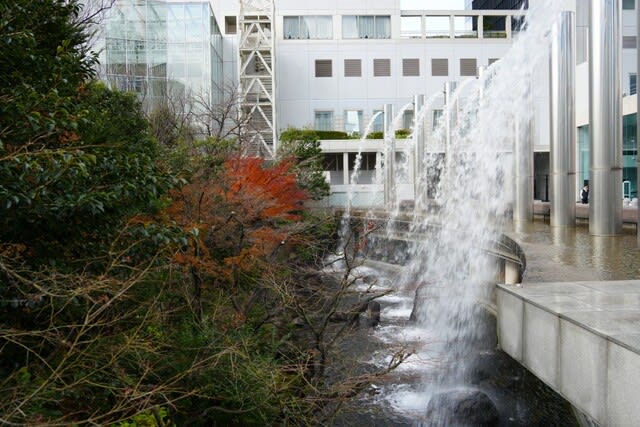Quanto segue è tratto dalla rubrica seriale di Hideo Tamura nel numero di febbraio della rivista mensile "Hanada".
La maggior parte degli economisti, commentatori economici e giornalisti giapponesi scrive solo di conoscenze di seconda mano dal Ministero delle Finanze.
Lui, tuttavia, è uno dei pochi che non lo fa.
Ho già detto che Yoichi Takahashi è uno di quelli che, come lui, scrivono la verità sull'economia.
È una lettura obbligata non solo per i giapponesi ma per le persone di tutto il mondo.
Legami di difesa" per liberarsi dal regime del dopoguerra
Pochi mesi prima della sua morte, l'ex primo ministro Shinzo Abe ha proposto l'emissione di obbligazioni per la difesa nazionale.
Ha deciso che le obbligazioni per la difesa dovrebbero essere trattate come "obbligazioni per la costruzione", che vengono emesse per finanziare progetti di lavori pubblici per la sicurezza futura della nazione.
Tuttavia, ciò che si frappone è la "Legge Finanziaria" entrata in vigore nel 1947, che è lo stesso regime del dopoguerra.
L'articolo 4 della legge è stato combinato con l'articolo 9 della Costituzione, che ha rinunciato alla guerra. Era in linea con le istruzioni del Quartier Generale del Comandante Supremo delle Potenze Alleate (GHQ).
I burocrati del ministero delle Finanze che hanno redatto la legge fiscale hanno dichiarato che i titoli di stato sarebbero stati una fonte di fondi per provocare la guerra. Invece, hanno provveduto a mantenere le spese del governo entro i limiti delle tasse e di altre entrate.
Il ministero delle Finanze limita l'emissione di titoli di stato a copertura del deficit, giustificando aumenti delle tasse e misure di austerità.
Tuttavia, l'articolo 4 contiene una disposizione che consente l'emissione di titoli di Stato per finanziare la spesa per lavori pubblici.
Il signor Abe ha sostenuto la "rottura dal regime del dopoguerra" durante la sua prima amministrazione, ma durante la sua seconda amministrazione, e anche dopo aver lasciato l'ufficio del primo ministro, l'ha tenuto a mente ma è rimasto un realista.
Nell'aprile 2022, quando la questione dell'aumento della spesa per la difesa è emersa come una questione urgente, il signor Abe ha riconosciuto che l'articolo 4 della legge fiscale era una legislazione dell'era dell'occupazione. Tuttavia, non ha provveduto a modificarlo.
L'ex consigliere di gabinetto Etsuro Honda, un membro della seconda amministrazione Abe, ha testimoniato che "il signor Abe pensava che se avesse promulgato la legge speciale sul debito pubblico per più anni contemporaneamente, piuttosto che promulgarla ogni anno, non ci sarebbero stati inconvenienti durante quella periodo in cui potrebbero essere emessi speciali titoli di Stato se il bilancio fosse approvato.
Il potenziamento della difesa si tinge dell'urgenza della contingenza di Taiwan che potrebbe scoppiare entro i prossimi cinque anni del terzo mandato del regime cinese di Xi Jinping.
Durante la guerra delle Falkland del 1982 tra Gran Bretagna e Argentina, il primo ministro M. Thatcher rimosse il ministro delle finanze dal gabinetto in tempo di guerra.
La "Iron Lady" ha spiegato il suo ragionamento al Parlamento britannico: "Non dobbiamo pensare ai militari in termini di quanto costerà".
Anche se non possiamo semplicemente confrontare la situazione con l'emergenza nel Regno Unito in quel momento, la risposta del ministro delle finanze e primo ministro Kishida orientato all'aumento delle tasse, le cui orecchie sono le prime ad ascoltare la proposta di aumento delle tasse della conferenza degli "esperti", sembra rimanere nella mentalità dei tempi normali.
Alcuni credono che il primo ministro Kishida non voglia essere accusato di essere influenzato dal ministero delle Finanze, ma gli manca una mentalità di "rottura dal regime del dopoguerra".
I burocrati finanziari ne trarranno vantaggio.
Il vice capo segretario di gabinetto Seiji Kihara, che è incaricato di coordinarsi con Kishida per volere del ministero delle Finanze, ha iniziato a coordinarsi con il governo e il partito al governo per rimandare qualsiasi cosa che possa creare una "fonte di entrate stabile" in cinque anni , cioè aumentare le tasse.
È sicuramente un trucco da burocrate finanziario.
Per il momento, il governo utilizzerà obbligazioni a copertura del deficit per coprire il deficit e poi aumenterà l'aliquota dell'imposta sui consumi al 15% per ripagare il deficit.
È il nichilismo finanziario senza la convinzione o l'ideologia della rottura con il regime del dopoguerra.
Coloro che insistono nell'interpretare la legge alla lettera e non si preoccupano del popolo sono stati responsabili del declino del Giappone.
L'emissione di "obbligazioni per la difesa" è una risorsa finanziaria strategica possibile solo in Giappone, la più grande nazione creditrice del mondo.
Libererà il Giappone dalla maledizione delle risorse finanziarie per aumentare la sua capacità di difesa attingendo al suo surplus di denaro.
Dall'inizio dello scorso anno, quando lo yen ha iniziato il suo torrente di deprezzamento, sia le quote sull'estero che le attività nette sull'estero sono fortemente aumentate.
Rispetto alla fine del 2020, le attività esterne saranno superiori a 34 trilioni di yen a partire da settembre 2020. Il governo sarà in grado di garantire i 6 trilioni di yen totali necessari per aumentare la spesa per la difesa se trarrà vantaggio dai guadagni non realizzati nelle attività esterne .
Le attività nette sull'estero indicano la solidità finanziaria del Giappone.
A giugno, era aumentato di 94 trilioni di yen dalla fine dei due anni precedenti a 448 trilioni di yen, pari all'82% delprodotto interno lordo (PIL).
La proposta degli esperti cita l'esempio del Regno Unito, dove il mercato finanziario è quasi crollato non appena la precedente amministrazione Truss ha proposto un significativo taglio delle tasse, e avverte che la stessa minaccia potrebbe essere presente in Giappone.
Il Regno Unito ha un debito estero netto di circa il 20% del suo PIL ed è alla mercé delle forze speculative all'estero.
Questo argomento controproducente confonde il Giappone, una delle principali nazioni creditrici, con il Regno Unito, una nazione debitrice.
Gli investimenti legati alla difesa possono essere un catalizzatore per ripristinare la forza economica.
Basta guardare gli Stati Uniti.
Mentre la spesa militare degli Stati Uniti è circa 25 volte quella del Giappone, la ricerca e sviluppo relativa alla difesa è più di 60 volte quella del Giappone, pari a più di 10 trilioni di yen all'anno.
Sotto il Dipartimento della Difesa degli Stati Uniti, la Defense Advanced Research Projects Agency (DARPA) è responsabile della ricerca e dello sviluppo e ha creato numerose innovazioni, tra cui Internet.
L'alta tecnologia, come la tecnologia dell'informazione (IT), viene utilizzata per scopi sia militari che civili e lo sviluppo della tecnologia militare ha un impatto diretto sull'economia nel suo complesso.
L'ingegnosità del Giappone nella produzione è notevole.
Il jet da combattimento giapponese F-2 è realizzato in fibra di carbonio e il suo radar anticollisione montato sul veicolo è stato sviluppato.
La storia dell'innovazione unica del Giappone, incentrata sull'alta tecnologia, inizierà quando il governo eliminerà le sue preoccupazioni finanziarie emettendo obbligazioni per la difesa.
Una base industriale rafforzata porterà alla crescita economica, che aumenterà il valore aggiunto delle aziende, espanderà l'occupazione e aumenterà il reddito del popolo giapponese.
I titoli di difesa dovrebbero posizionarsi alla pari dei titoli di costruzione piuttosto che dei titoli di deficit trattati come "eccezioni speciali" per i bambini che si comportano male.
È il modo per rivitalizzare il Giappone liberandosi dal regime del dopoguerra.
Reporter speciale di Sankei Shimbun





















